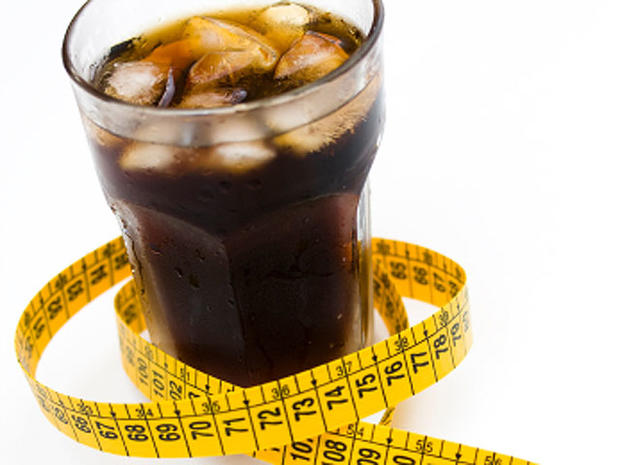Teens keep chugging soda despite health risks, says study
(CBS/AP) A new study says that an alarming number of teens continue to consume soda and other sugary soft drinks every day, despite the fact that such behavior may contribute to childhood obesity and diabetes.
A survey of 11,000 high school students found one in four teens drink soda every day. And when other sugary drinks like Gatorade are counted, the figure is closer to two-thirds of students drinking a sugary beverage daily.
The findings were published in the June 17 issue of Morbidity and Mortality Weekly Report.
The numbers are actually lower than previous estimates. Earlier research in the 1990s and early 2000s showed more than three-quarters of teens were drinking a sugary beverage each day. That means more teens are now drinking water, milk, and fruit juices.
"We were very pleased to see that," said the study's lead author, Nancy Bener, a health scientist at the Centers for Disease Control and Prevention.
But one-quarter of high school students is still too high of a number, because consumption of sugary drinks is considered a major public health problem. Soda consumption has been linked to the U.S. explosion in childhood obesity, where 17 percent of Americans age 2 to 19 are obese, according to the CDC.
A study of Massachusetts schoolchildren found that for each additional sweet drink per day, the odds of obesity increased 60 percent. Many schools stopped selling soda or artificial juice to students in light of those findings, but experts think that's not enough.
"Getting them out of the schools doesn't solve the problem completely because a lot of these drinks are consumed in the home," Bener said.
And obesity is far from the only health risk soda has been linked with.
A 2010 study in the journal, "Diabetes Care," found daily soda drinkers were 25 percent more likely to develop type 2 diabetes. Also phosphoric acid, a main ingredient in soda, has been linked to bone loss in those getting more of the chemical than calcium, according to WebMD. Too much caffeine has also been associated with bone loss, in addition to insomnia, high blood pressure and headaches.
And the diet stuff isn't much better. A 2011 study found daily diet soda drinkers were at a 61 percent higher risk for stroke and heart attack, Medscape reported.
How will researchers stop this trend?
The authors said its "Critical to involve families, the media, and other institutions that interact with adolescents to increase their awareness of possible detrimental health effects and discourage their consumption of sugar-sweetened beverages."
The CDC has more on healthy beverages.
